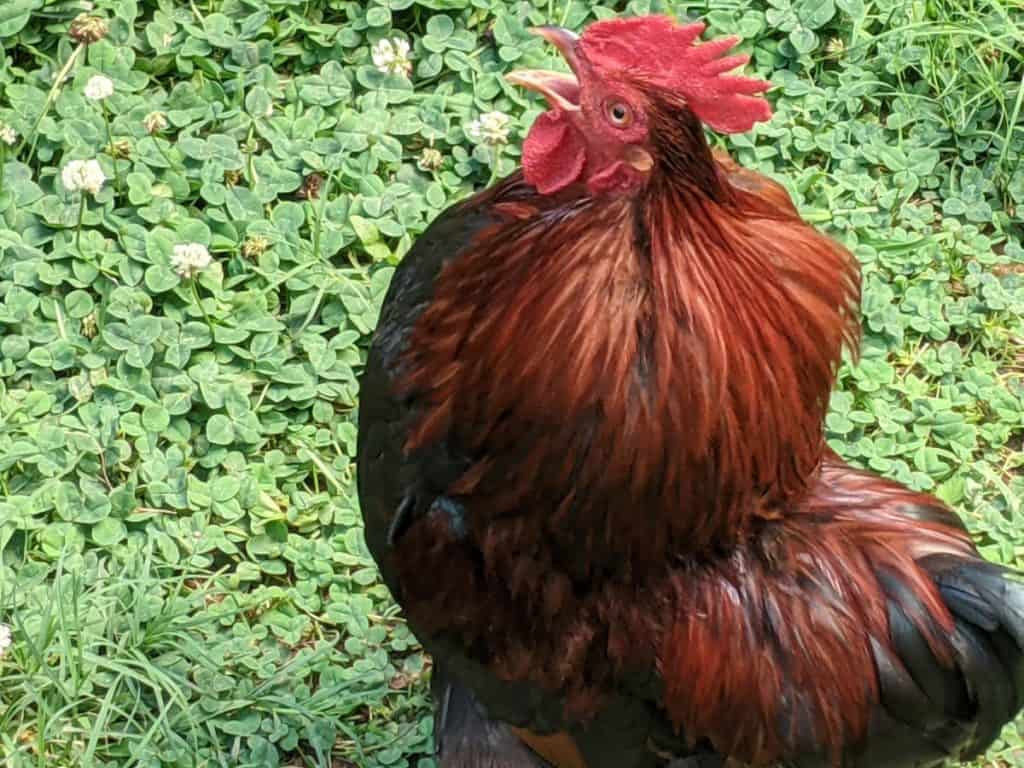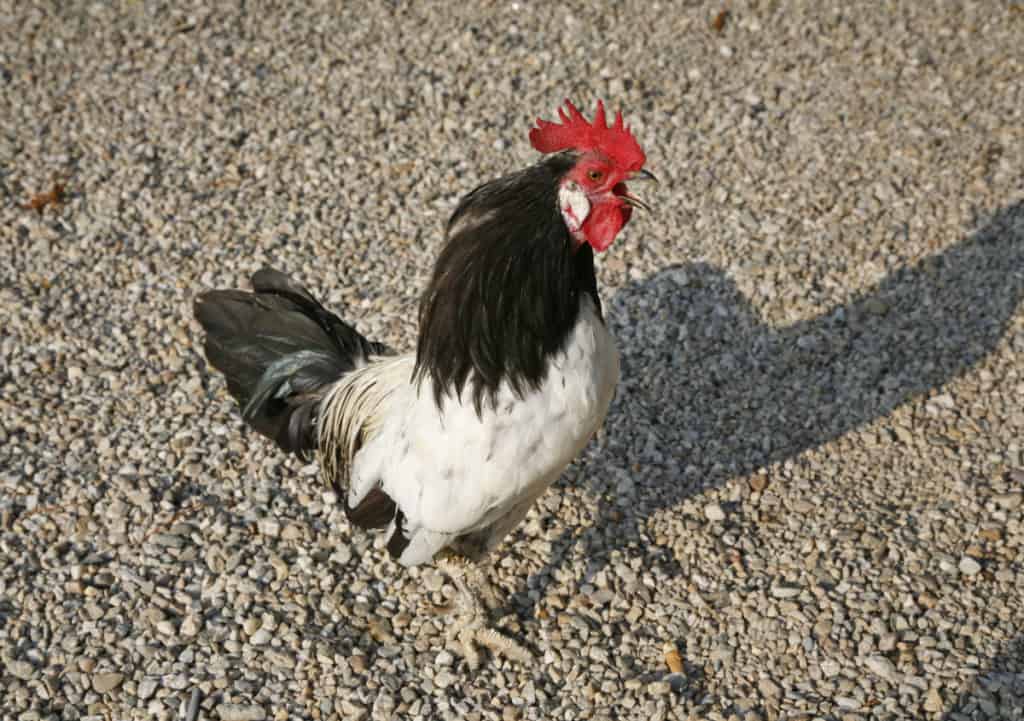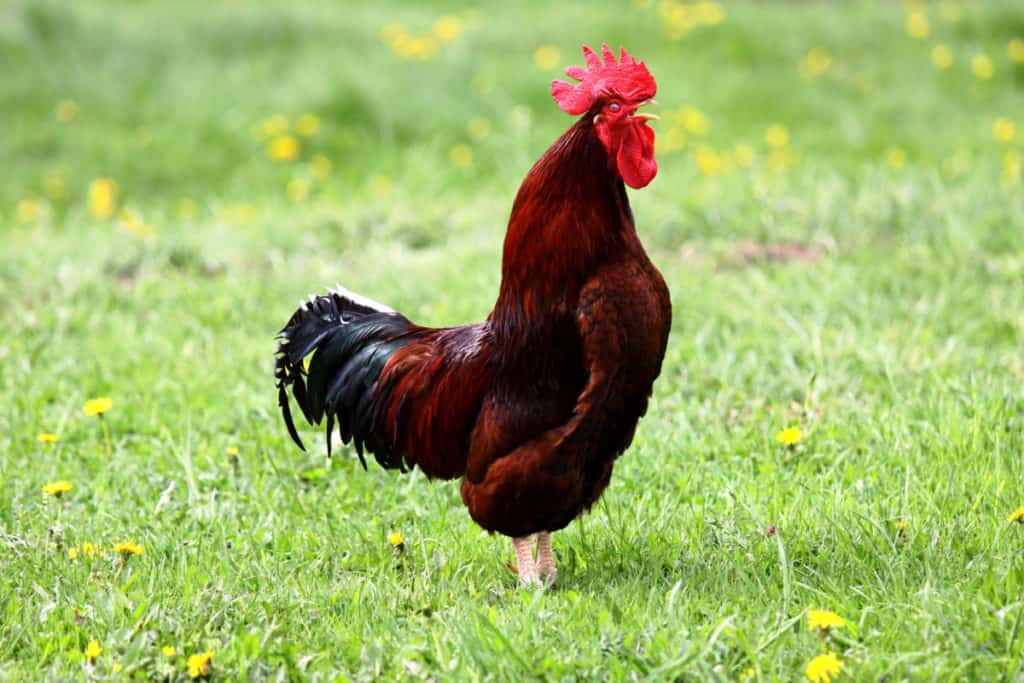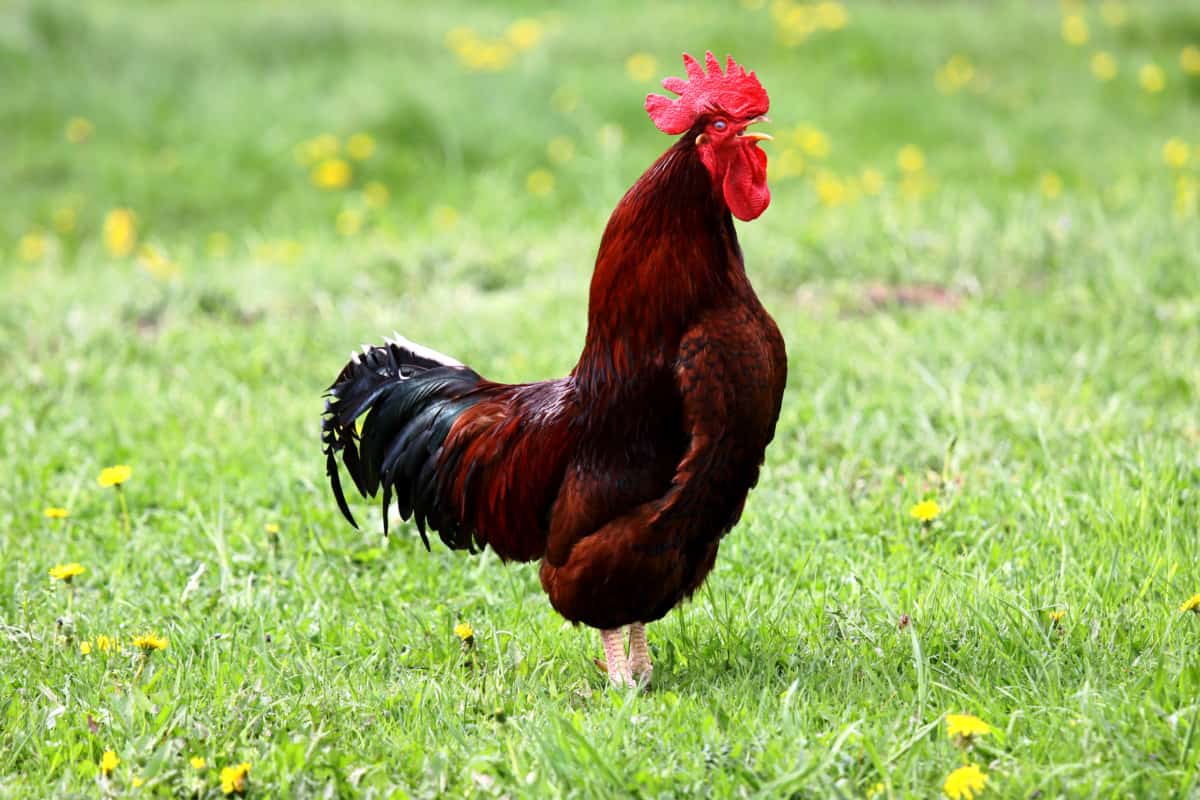Most people are used to the wake-up calls of a rooster crowing in the early hours of the morning, while to other people, this sound can be the bane of their existence. But there is a lot more to a rooster crowing than just to wake you up early. Here is all you need to and should know about rooster crowing.
Roosters crow for various reasons, including indicating their territory, warning hens in their flock about a potential predator, and their biological clocks. Roosters will also crow at any time of the day and not just in the morning. And some roosters may just crow because they can.
So, roosters will crow a lot, but what are the possible reasons for a rooster to stop crowing? And at what age do roosters usually start to crow? Why do some roosters seem to crow all the time? We go through as well as answer these questions in this article.

Why Do Roosters Crow?
Roosters tend to crow a lot, which can be annoying for some people, but there are actually a few reasons why rooster crowing happens in the first place that is quite valid in the animal world and should be respected by people.
1. Circadian Rhythm Clock
One reason is that, just like every other bird, roosters crow or sing in a daily cycle that is directed by their internal clock that is called the Circadian rhythm clock. This is why roosters tend to cow a few hours just before daybreak, as they are waiting in anticipation for the sun so that they can begin their daily routines.
2. Roosters crow to defend territory
Roosters also use crowing to indicate and defend their territory from other roosters that may be encroaching on their land. So, their early morning crow is also a way to warn other roosters of their presence.
3. Roosters crow to communicate
Roosters may also begin to crow when they hear other roosters nearby crowing as this is how they communicate with each other as well, not just for warning purposes.
4. Roosters crow to keep their hens safe
But this crow to mark territory is not the only one that roosters have. Some crows can also be heard throughout the day too, as the rooster wants to ensure the safety of its hens in its flock. They may crow to help keep their flock safe from approaching dangers so that they have time to escape.
5. Roosters crow because they want something
Roosters also crow if they are bored, out of food, of water, or want out of the chicken run.
6. Roosters crow to maintain a pecking order
A rooster crowing lets his flock know he is the alpha of the flock.

What Age Does A Rooster Start Crowing?
The age at which a rooster will begin to crow will depend on two factors: the breed of the rooster and the individual rooster. Some roosters will start to crow at three weeks of age, while other roosters will only begin to crow at around 6 to 12 weeks.
The reason for such an enormous age range for when your rooster may begin to crow is that roosters will start to crow when they start maturing, and some breeds of chickens mature faster than others, so they will begin crowing at a younger age.
It could, however, also depend on each roosters’ personality as well. Roosters do differ from one another, just like people, and you get roosters that are more outgoing and vocal, and you get other roosters that are more timid and shy.
The timid and shy roosters will take a bit longer to try and crow and develop their voice, while the more aggressive rooster may begin to crow at three weeks old.
Why Would A Rooster Crow All The Time?
Anyone who owns a rooster or has stayed in a place where a rooster is kept knows that roosters do not only crow in the morning. As mentioned earlier in this article, roosters will indeed crow throughout the day to help protect their hens.
But roosters will also sing their lovely crow at night, which can, understandably, be slightly challenging for some people to deal with.
There are a few reasons for this occurring: the rooster may have heard something outside the chicken coup, and it may be warning its hens about possible danger, it may hear another rooster crow in the distance and is replying, its daily cycle may be confused due to strong lights set up around the property.
My rooster has been known to crow to help break up hen arguments over roosting space as well as letting me know if I have a sick or hurt hen.
If your rooster is insistently crowing, then this could indicate that the rooster does not feel comfortable and safe in its current environment and it is worrying for the safety of its hens, or it could suggest that the rooster is not feeling great and could possibly be ill, which may only happen if the rooster is the only one in the flock.

Why Do Roosters Stop Crowing?
If your rooster was a big crower and suddenly stops, there are a few things that you can look at to find the reason, which may require your intervention as the reason could be damaging your rooster’s health.
Roosters may stop crowing if they are injured, which they instinctively do to ensure that they do not draw attention to themselves while still healing as they are easy targets for predators when injured. This may require some medical intervention if the injury is severe enough.
If your rooster falls ill, then they do tend to stop crowing as, again, they want to stay hidden while they are recovering and all the energy that they usually put into crowing now needs to go towards battling a virus or bacteria.
They may even stop crowing if they are ill to try and keep their place as the dominant rooster of the flock because if other roosters find out that he is sick, they may challenge him, and he will not have enough energy or strength to fight them off.
The rooster should start to crow again when they are back to full health, but this may require some medical assistance depending on what the illness is.
A rooster may also stop crowing when they are being bullied by a highly dominant or aggressive head rooster of the flock. After receiving many “lessons” from the alpha rooster, the lower-ranked rooster may fall silent for self-preservation.
If a rooster is still relatively young or if the rooster is beginning to get old, then the rooster may not crow. The younger ones may not be mature enough yet, and the older ones may stay silent for self-preservation and avoid being bullied by the younger alpha rooster.
Conclusion
Roosters will crow for many different reasons, and they will crow at other times of the day every day, but this is a healthy thing for roosters to do, and the cowing helps you ensure the protection and safety of your flock of chickens.
Even though the crowing can be a bit annoying at times, it is a big help to chicken owners, and it’s a natural part of a rooster’s life.

